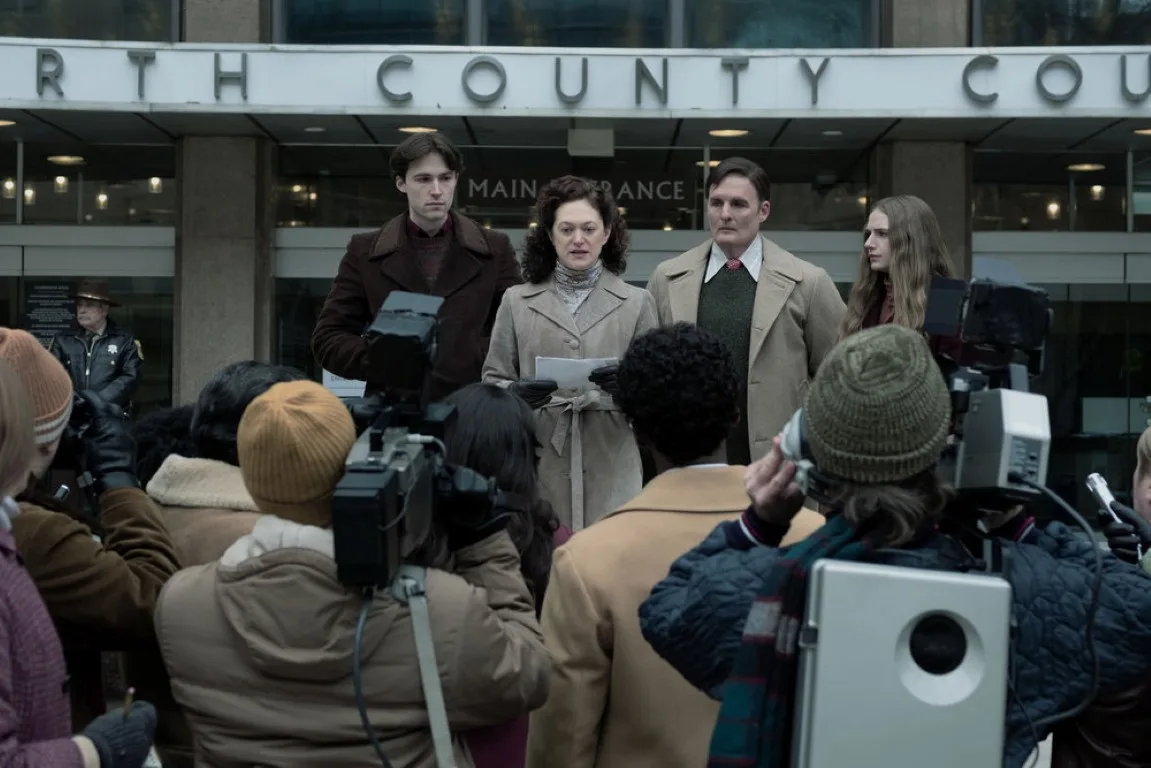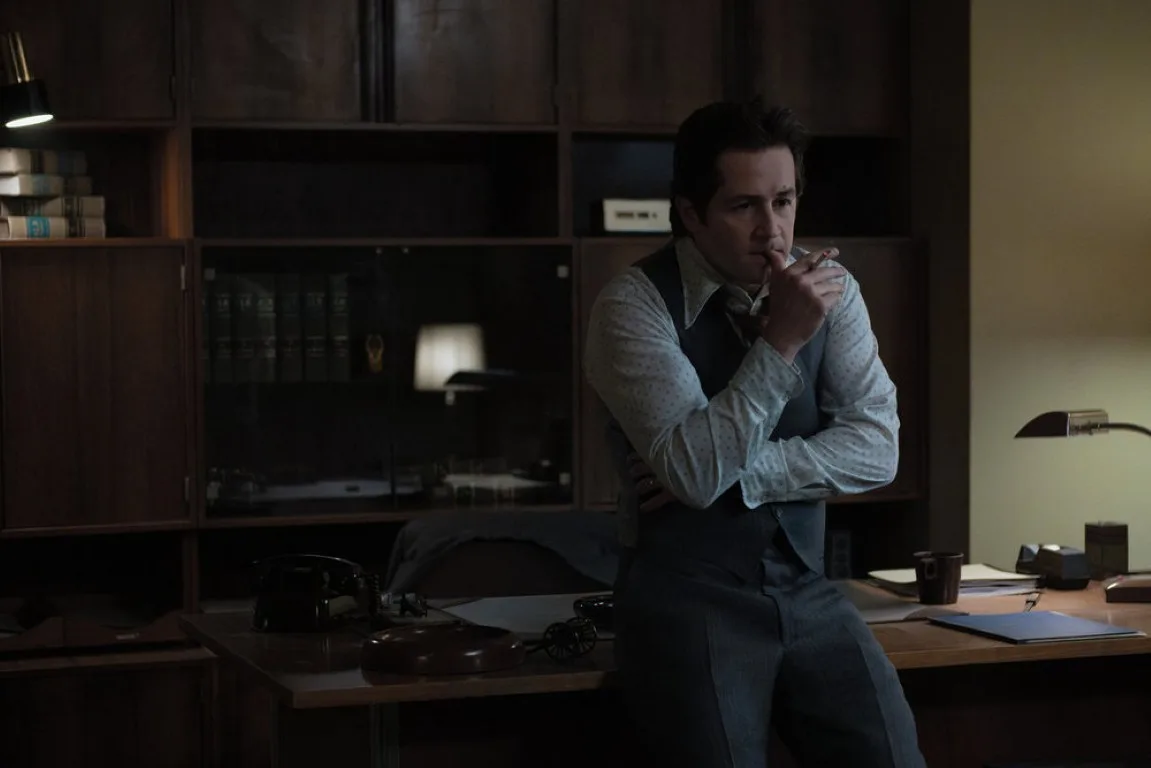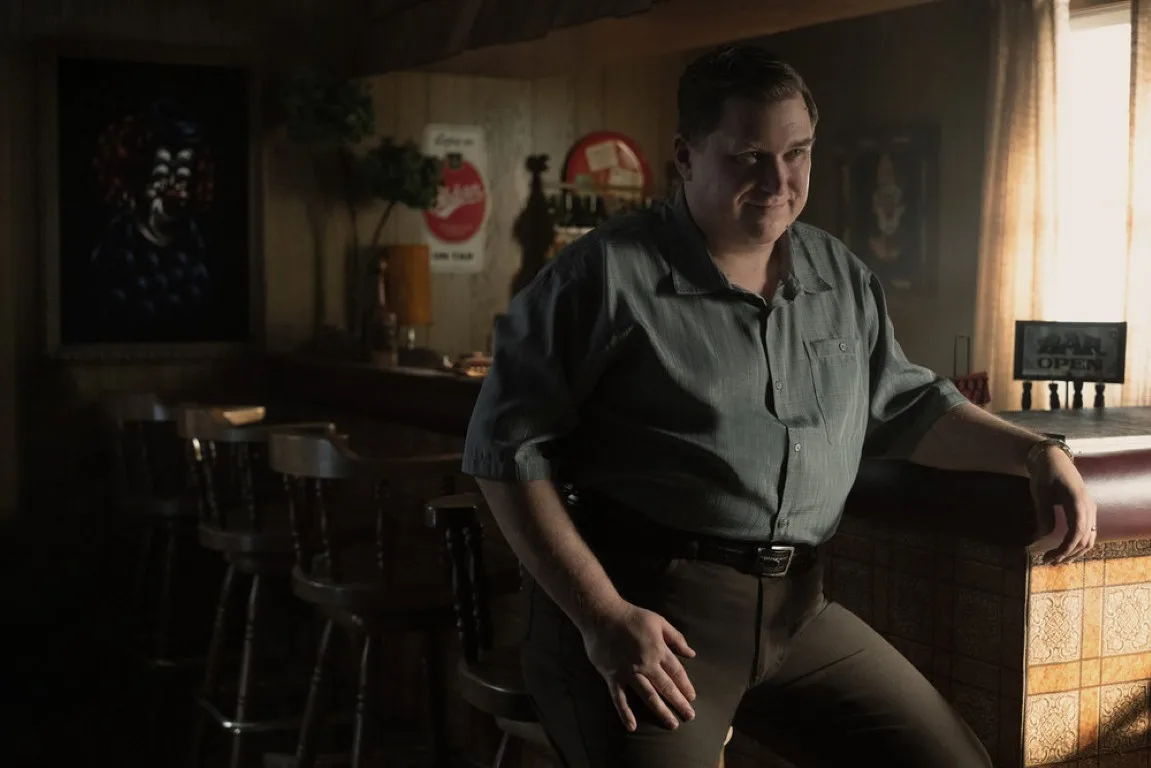I don’t like spending time with John Wayne Gacy, the infamous serial killer who murdered more than 30 teen boys and very young men in the seventies, burying many of them under his house. But Peacock’s “Devil in Disguise: John Wayne Gacy” is an important watch, exploring how ideas about masculinity enable horrible crimes like Gacy’s to happen, unpunished.
Part of what makes “Devil in Disguise” so strong is how showrunner Patrick Macmanus put his limited series in conversation with other true crime shows. We see no murders and very few acts of violence. Timothy Jack McCoy, John Butkovich, Francis Wayne Alexander, Darrel Samson, Samuel Stapleton, Randall Reffett, Michael Bonnin, William Carroll, Jimmy Haakenson, Rick Johnston, William George Bundy, Kenneth Parker, Gregory Godzik, John Szyc, Jon Prestidge, Matthew Bowman, Robert Gilroy, John Mowery, Russell Nelson, Robert Winch, Tommy Boling, David Talsma, Bill Kindred, Timothy O’Rourke, Frank Landingin, James Mazzara, Robert Piest—these are the boys, ranging in age from 14 to 21, the show names and introduces us to. We see many of these young men for who they were: boys figuring out their places in the world, friends, sons, and lovers. And in many cases, we don’t see them with Gacy at all.
The result is a haunting series that emphasizes the humanity of the victims and the loss they experienced to their loved ones and the world. These aren’t people defined by their death, but instead, by their full, if short lives. These are boys who deserved better.

The show is also very clear about who’s at fault. Of course, primarily, it’s John Wayne Gacy, played by a phenomenal Michael Chernus. As the title suggests, his Gacy is completely believable, helping an elderly neighbor through the Illinois snow and turning dark when a boy falls into his snare. This is the guy who made us all scared of clowns, a murderer who performed for sick kids in hospitals, met with first lady Rosalynn Carter, and was a well-regarded businessman. So even as Chernus embodies his real character’s midwestern nice (Gacy gets caught after he invites the police tailing him in for beers), it’s also clear that there’s evil and sickness at this man’s core.
The show helps Chernus by structuring itself not as a whodunit but as an exploration of the systems that allowed Gacy to go free for so long. By the end of the first episode, he’s in custody, although the trial occurs in the second-to-last installment, with the aftermath powering the final chapter. True to form, we don’t see testimony or courtroom theatrics. In the final installment, we don’t see Gacy at all. Instead, the show continues to focus on the surviving people in Gacy’s orbit—how they felt, how they coped, what they tried to change.
Because a lot needs to change, outside of the apprehension of this one man. Gacy’s were sex crimes between a man and many boys, some on the cusp of manhood. As such, telling his story could veer into demonizing gay men as inherently perverse or violent. But “Devil in Disguise” smartly refutes that trap, in part by showing how Gacy’s own, internalized homophobia underlied his violence.
But more than that, “Devil in Disguise” indicts our institutions for failing to believe that hard scrabble and/or queer boys could be victims. The series emphasizes that the Chicago PD consistently overlooked the boys’ disappearances, spending their resources elsewhere. Even when Jeffrey Rignal (Augustus Prew) survives an encounter with Gacy, reports it, and eventually tracks and finds his assailant, the officers refuse to press charges. They believe Gacy when he says that gay men regularly torture each other in this way, including burning Rignal with chloroform. Gacy works their prejudice to his benefit and goes free.

Gabriel Luna as Detective Rafael Tovar, the lead detective on the case, gives a haunting performance as he uncovers all the missed opportunities to catch Gacy earlier. As a father to a son just a little too young for Gacy and an officer who worked vice, he sees the humanity of the victims and aches for them. His chief, Joe Kozenczak (a strong James Badge Dale), also sees the problem and works to address it. But Kozenczak is worried about losing his institutional power and will only push so much, ultimately undercutting the victims he is trying to serve. In this, the chief’s cowardice reflects the many who know right from wrong but aren’t willing to put themselves at risk for justice, the silent majority who let evil transpire.
We also meet the attorneys who try Gacy’s case. Bill Kunkle (Chris Sullivan) is a smarmy district attorney whose professional ambitions align with his task of prosecuting the serial killer. Michael Angaranoas as Sam Amirante, Gacy’s defense attorney, is excellent. He makes a strong case for everyone’s constitutional right to rigorous defense even as he confronts Gacy’s horrible crimes and deals with his client’s inability to discern his new reality. Angaranoas has a toughness and swagger that perfectly meet the moment without ever being overwrought.
“Devil in Disguise” further succeeds by rooting itself in a specific place and time. This is a story of a generation of boys who are only valued when they come from “good” (aka well-to-do and white) families and consistently perform heterosexuality. The casting matches modern actors with their 70s counterparts, giving them the same haircuts and wardrobe. Likewise, the cars speak to the moment, with Gacy’s menacing sedan transporting us back. Even the architecture speaks to a time in the not-so-distant past when, say, the law did not recognize that the crime of rape can occur between two men.
But it does happen. And “Devil in Disguise” reminds us that when we look back on true crimes, it is not the luridness of the violence or the puzzle of the investigation that matters. It is the people affected, their futures torn asunder in the wake of such terrible acts. And the way we honor them is not simply to remember, but to work on the institutions that enable violence, that demand perfection from victims to be taken seriously, that code entire groups of people as undesirable. That’s what “Devil in Disguise” is about, and it portrays these truths artfully with a moral clarity that echoes through the script, off the screen, and into our lived, imperfect reality.
Whole series screened for review. Premieres tomorrow, October 16.












